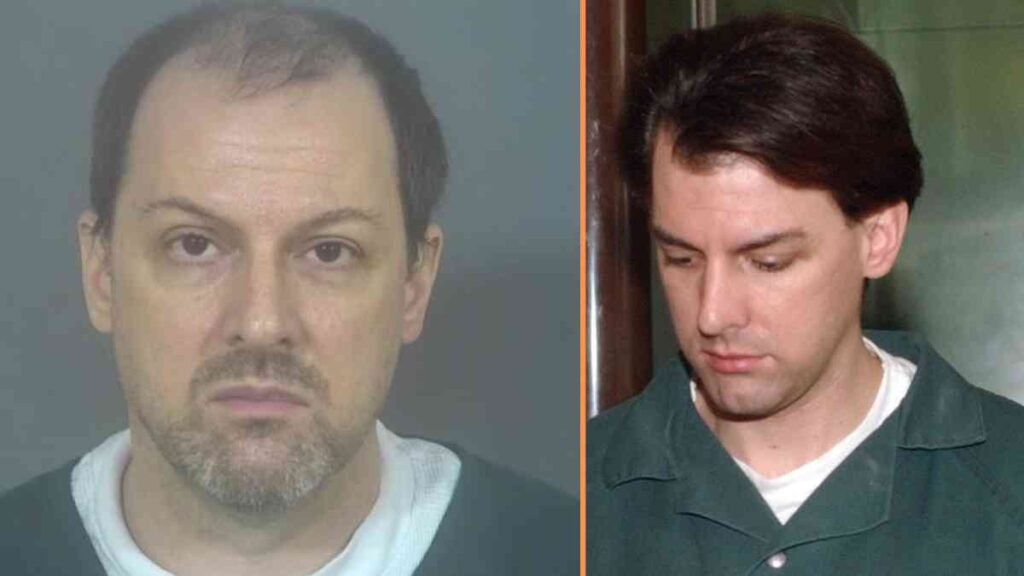The case of Jeff Pelley, also known as the “Prom Night Murders,” stands as one of the most chilling family tragedies in modern history. In April 1989, the serene town of Lakeville, Indiana, was rocked by the brutal murders of four family members, casting an indelible shadow on the community.
Jeff Pelley, then a 17-year-old high school senior, was accused of killing his father, stepmother, and two stepsisters just hours before attending his high school prom. Decades later, his conviction continues to stir debate, with supporters claiming his innocence and critics defending the evidence.
The Night of the Murders
A Prom Night Turned Nightmare
On April 29, 1989, Lakeville seemed poised for a festive prom night. However, at the Pelley family home, tragedy struck. Investigators discovered the lifeless bodies of Reverend Bob Pelley, his wife Dawn, and her two daughters, Janel and Jolene. Each had been shot at close range with a shotgun.
The crime scene revealed no signs of forced entry, leading authorities to believe the murders were committed by someone within the household. Suspicion quickly fell on Jeff, the only family member unaccounted for during the discovery of the crime.
The Investigation
Early Leads and Suspicions
Detectives learned that Jeff had argued with his father earlier that day over prom night privileges. Bob had reportedly forbidden Jeff from attending the prom as a punishment for misbehavior. Witnesses later testified that Jeff was at the prom, seemingly carefree, shortly after the estimated time of the murders.
Further investigation revealed that the family shotgun, believed to be the murder weapon, was missing. Coupled with Jeff’s alleged anger towards his father, authorities began piecing together a motive.
The Lack of Direct Evidence
Despite their suspicions, investigators lacked direct evidence linking Jeff to the crime. The case relied heavily on circumstantial evidence, including Jeff’s behavior and timeline inconsistencies. Without physical proof, the prosecution faced significant challenges in securing a conviction.
The Trial and Conviction
A Trial Decades Later
Jeff Pelley’s trial didn’t begin until 2006, 17 years after the murders. Prosecutors argued that Jeff, angered by his father’s restrictions, killed his family to ensure he could attend the prom.
Key witnesses testified about the strained relationship between Jeff and his father, and forensic evidence suggested that the murders occurred within the time frame Jeff was home. Ultimately, the jury convicted him of all four murders, sentencing him to 160 years in prison.
Controversies and Appeals
Questions About Fairness
Jeff Pelley has always maintained his innocence. His defense team has raised questions about the fairness of his trial, arguing that the case relied too heavily on circumstantial evidence.
In recent years, new forensic technologies have cast doubt on the timeline presented during the trial. Supporters of Jeff argue that alternative suspects were not adequately investigated and that critical evidence may have been overlooked.
Denial of Retrials
Over the years, Jeff has filed multiple appeals seeking a new trial, but each attempt has been denied. In April 2024, a judge ruled against his fourth request for retrial, stating that the evidence did not warrant overturning the conviction.
The Legacy of the Prom Night Murders
The story of Jeff Pelley and the Prom Night Murders remains a haunting chapter in true crime history. For some, it is a cautionary tale of how a moment of anger can lead to irreversible tragedy. For others, it is a case riddled with unanswered questions, fueling ongoing debates about justice and innocence.
Conclusion
The Prom Night Murders continue to captivate the public’s attention decades after the tragic events unfolded. Jeff Pelley’s case serves as a grim reminder of the complexities of the legal system and the enduring impact of violent crime on families and communities.
While Jeff Pelley serves his sentence, the discussions surrounding his guilt or innocence are far from over. This case challenges us to reflect on the nature of justice and the weight of circumstantial evidence in securing convictions.
For More Visit, Mirrormagazine.co.uk


